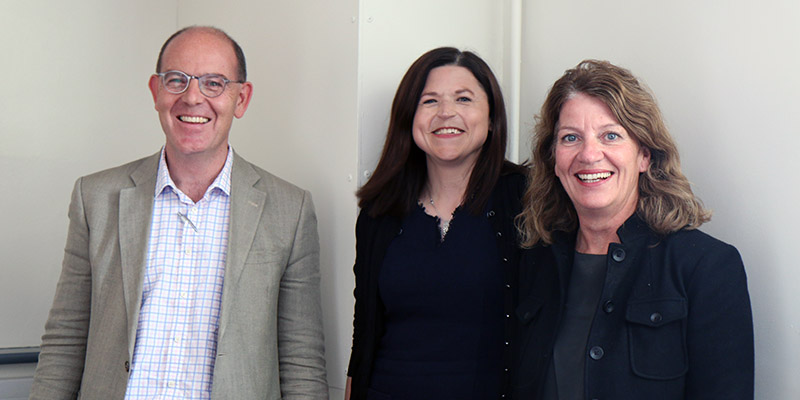NEWS
England’s chief nurse unveils £130,000 funding to develop primary care nurse leaders![]()
Nursing Standard
Snell J
25th September 2019
Also HSJ 24th September – New money to strengthen PCN nursing leadership
Expo 2019: NHS Confederation BME Leadership Network offers influence, voice and opportunity for BME leaders![]()
Joan Saddler, Director of Partnerships and Equality at the NHS Confederation
NHS Confederation, 30th Sept 2019
Black History Month Leadership Event![]()
NHS Yorkshire and the Humber Leadership Academy
16th October 2019, Leeds
The Service announces new leadership structure to support pioneering strategy![]()
London Ambulance Service NHS Trust
24th September 2019
4th Women in Healthcare Leadership Summit, Australia , October 2019 ![]()
PDF gives run down of all the sessions over 2 days
Excerpt from PDF “Australia is known for having one of the best healthcare systems in the world, but recent developments have shown we have room for improvement. As Healthcare continues its customer-centric transition, we must push to infuse patient journeys with human warmth and drive equitable health outcomes across all segments of our multicultural society. To realise this growth and take Healthcare into the future, we’re going to need thoughtful, innovative leaders with a competitive suite of skills. ”
REPORTS
A Burdett Trust for Nursing funded study on an evidence-based nurse retention model![]()
Excerpt “Bouremouth University Associate Professor Janet Scammell is the Principal investigator of the Burdett Trust for Nursing funded research, looking at how nursing levels can be improved or maintained through the collaborative development and use of an evidence-based nurse retention model, known as TRACS (Transition, Resilience, Authentic Leadership, Commitment, Support). ”
“The TRACS model focuses on key factors known to impact on intention to stay:
- supporting Transition at key career and personal life junctures (such as access to childcare)
- building Resilience to develop positive coping strategies,
- facilitating Authentic nurse leadership throughout the organisation,
- securing Commitment to working practices that support work-life balance
- providing on-going personal and professional Support for staff health and wellbeing.
The two-year study concluded in September 2019″
Presentation slides here Improving Nurse Retention Conference 2019
Making TRACS to improve nurse retention: Project findings
Leadership and valuing staff workshop summary (from above conference)
Strengthening midwifery leadership: a manifesto for better maternity care![]()
The Royal College of Midwifery
Published August 2019
Image excerpt from document above
BLOG POST
Tackling ‘imposter syndrome’: working with third sector leaders![]()
The King’s Fund
Blog by Naylor, D, 19th September 2019
Excerpt from blog “What can we do to resist our imposter feelings?
The literature suggests the following.
- Talk about it – others may also be struggling with similar feelings.
- Understand – the syndrome is well researched. Knowledge can help disrupt a negative script.
- Know what triggers negative feelings. Big groups do it for me. Now I know this, I can have a different conversation with myself when I am revising my well-researched lecture at 3am on the day.
- Record achievements to disrupt the script of ‘I know nothing’.
- Think ‘good enough’ – perfection is impossible, particularly when an issue is complex.
- Be curious about feeling particularly stupid or incompetent – while this is felt personally, it may also be a clue about something difficult emerging in a conversation; something no one feels confident about managing. Bracketing this off as just another example of how incompetent one is, is to miss the opportunity to talk about what may really be going on.
- Self-doubt is a core skill – to learn one must be prepared to radically question what one assumes to be true. Dismissing this doubt as ‘just imposter syndrome’ can mean missing moments of productive reflection.
- Pay attention to hours worked – while it may be routine in some work cultures to work long hours this can be a reason not to have conversations about why we work so hard and why we collectively agree to this.
The sense of being an imposter is real and can be personally debilitating, but it is more than a personal experience. If, in a group, 50 per cent of people are privately struggling with their sense of being imposters, it will have a profound impact on the way the group works; what it notices and what and whom it ignores. Speaking up despite feeling like an imposter is an important skill for all of us, if we are to remain thoughtful, curious and help others to keep learning.”
PODCAST
Deborah Lee on mental health – leading the way and tackling stigma![]()

25 / 09 / 2019
Excerpt from NHS Employers website “In this podcast Deborah Lee, chief executive of Gloucestershire Hospitals NHS Foundation Trust talks about her decision to share her own experience of mental health with her staff, and the importance of leading the way and tackle stigmas associated with mental illness. She encourages leaders to develop organisational cultures that prioritise the mental wellbeing of staff and enable open discussion of mental health, saying “one of the responsibilities of leaders is not just to lead the organisation you are in, but to recognise that you can set the tone for leadership more generally.” ”
INCLUSION AND DIVERSITY
Evaluation of the NHS Workforce Race Equality Standard (WRES)![]()
NHS England, 20th September 2019
Excerpt “This document is an interim report detailing the first six months of an evaluation of the WRES. This is an independent evaluation, conducted at the University of Sheffield, in conjunction with Lancaster University, with funding provided by NHS England.”
Diversity and inclusion – the roadmap to success, 1 October 2019![]()
Local Government Assocation
Download the presentations from this event
JOURNAL ART ICLES
ICLES
Creating room for evidence-based practice: Leader behavior in hospital wards.
Renolen Å, et al
Res Nurs Health. 2019 Sep 23
Mentoring millennials for nursing leadership.
Bittner A.
Nursing. 2019 Oct;49(10):53-56
A model to streamline career progression for nurse managers and retain emerging leaders.
Stamps DC, Beales S, Toor M.
Nurs Manage. 2019 Oct;50(10):28-34
Reflection on creating a coaching approach to student nurse clinical leadership development.
Leigh J, Littlewood L, Lyons G.
Br J Nurs. 2019 Sep 26;28(17):1124-1128
‘Dignity and respect’: An example of service user leadership and co-production in mental health research.
Faulkner A, Carr S, Gould D, Khisa C, Hafford-Letchfield T, Cohen R, Megele C, Holley J.Health Expect. 2019 Sep 26
Women in oncology pharmacy leadership: A white paper.
Shillingburg A, Michaud LB, Schwartz R, Anderson J, Henry DW; endorsed by the Hematology/Oncology Pharmacy Association (HOPA).
J Oncol Pharm Pract. 2019 Sep 25
Investigating the Role of Stress-Preventive Leadership in the Workplace Hospital: The Cross-Sectional Determination of Relational Quality by Transformational Leadership.
Stuber F, Seifried-Dübon T, Rieger MA; Contributors of the SEEGEN Consortium, Zipfel S, Gündel H, Junne F.
Front Psychiatry. 2019 Sep 3;
Why nursing associates are splitting opinion
Launder M
Nursing in practice
Tuesday 1st October, 2019
Excerpt ” To analyse its impact so far and potential to contribute to the profession, Nursing in Practice spoke to a variety of stakeholders, including nursing associates, academics and policy makers.” “Ms Bayliss-Pratt (HEE Chief Nurse, currently taking a six-month secondment as pro vice-chancellor at the University of Coventry) says HEE must make sure the role is properly communicated: ‘We’ve got to speak to leaders in the clinical fields about this role and ensure they understand exactly what the role is, what it does and how it adds value.’ “
CALL FOR PAPERS
Humanistic Leadership in Different Cultures: Defining the Field by Pushing Boundaries![]()
Emerald Publishing, special issue of Cross Cultural & Strategic Management
The submission portal for this SI will open October 1, 2019







 ased on “interviews with senior leaders in health and local government on what is really happening as managers grapple with the Sustainability and Transformation Plan (STP) process” and ” analyses the difficulties these new, highly pressured networks are experiencing, and identifies how healthcare managers need to think and act differently to make systems leadership a success”
ased on “interviews with senior leaders in health and local government on what is really happening as managers grapple with the Sustainability and Transformation Plan (STP) process” and ” analyses the difficulties these new, highly pressured networks are experiencing, and identifies how healthcare managers need to think and act differently to make systems leadership a success”






 new information on the implications of the Francis Report, globalisation and team working. It also has an
new information on the implications of the Francis Report, globalisation and team working. It also has an